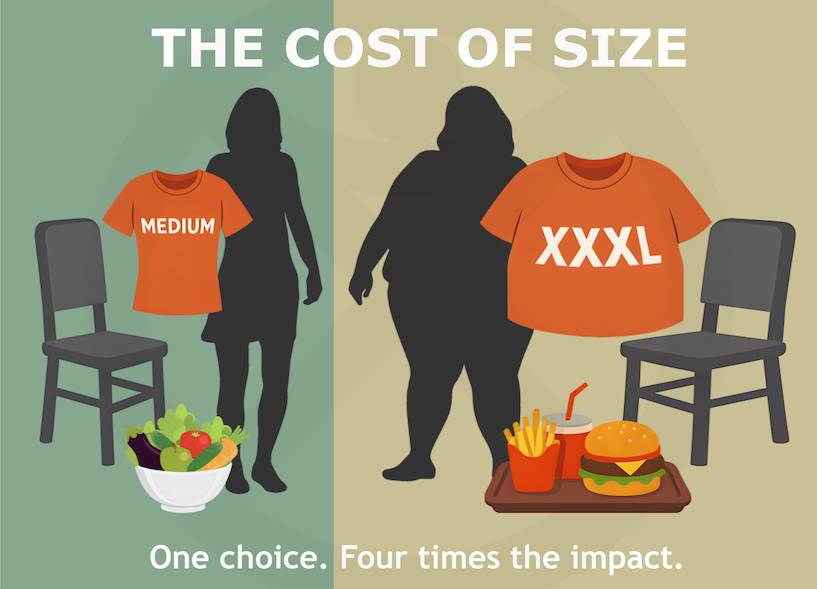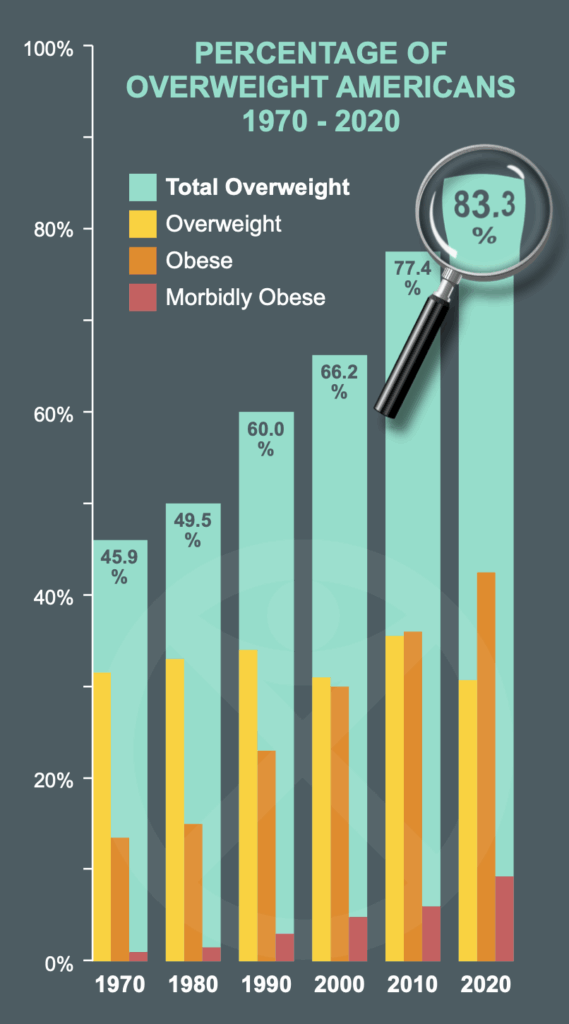rethinking obesity
the elephant in the room
In a culture where self-expression reigns supreme, even our vulnerabilities are now viewed as strengths. Once taboo, obesity has been rebranded into body positivity and personal empowerment, where criticism is an insult, but silence is solidarity, and where ‘my body, my rules’ now champions self-harm. And yet, behind this celebration lies a quietly devastating truth: obesity is not simply a private matter, it is a symptom of unbridled corporate greed – something that has serious implication for the environment, and comes with a social cost we can no longer afford to ignore.
This is not an attack on individuals.
It is not about shame or aesthetic judgement.
It is about consequence.
Obesity does not arise from personal failure alone. It is engineered – an inevitable outcome of an economic system that thrives on excess. Fast food, ultra-processed snacks, oversized portions, targeted marketing, and sedentary lifestyles are not random features of modern life. They are part of a profitable strategy that preys on instinct and impulse, but deceptively presents it as liberty and autonomy. And the profits don’t end with indulgence – they extend into illness. That same system that feeds obesity also feeds off its side-effects: the vast pharmaceuticals and medical industry capitalising from treatment rather than prevention.
And now, to shield this manipulation from being exposed, we are sold a new message: that obesity is not just acceptable, but something to take pride in, and to question it, is to be offensive. This reframing serves no one but the corporations who profit from indulgence disguised as identity.
Obesity is not just about bodies and consumption, but about everything it requires, and eventually discards. Take someone who fits an XXXL T-shirt: they not only consumes excessive calories, but require four times as much cotton to make that T-shirt than it takes to make a medium sized one. Cotton is an environmentally destructive crop, responsible for vast water consumption, pesticide pollution, and the exploitation of labourers in some of the world’s poorest regions.

Over-eating means more agriculture, more methane from livestock, more deforestation, more fossil fuel usage in transport, production, and packaging. Obesity multiplies all these concerns, and not just through food but through scale; larger beds, reinforced furniture, increased waste output, greater use of water and sewage processing – all of these reflect the environmental cost that larger bodies demand from the system’s infrastructures. In countries with high obesity rates, these are not marginal effects, they are significant. We talk about carbon footprints, but we’re reluctant to mention the destructive weight of eating to excess.
Beyond the environmental impact lies the more disturbing truth: obesity often thrives at the expense of others. In low-wage economies, agricultural and textile workers labour under extreme conditions to meet rising demand for cheap food and oversized clothing. Water diverted to produce cotton or grain for livestock often deprives local communities of clean drinking water. The appetite of wealthy nations – made visible by their ever expanding waistlines – is paid for by those with little or no choice in the matter. Sweat-shop slaves, with barely enough to eat, making extra-large clothes for those who eat too much.

Over-eating means more agriculture, more methane from livestock, more deforestation, more fossil fuel usage in transport, production, and packaging. Obesity multiplies all these concerns, and not just through food but through scale; larger beds, reinforced furniture, increased waste output, greater use of water and sewage processing – all of these reflect the environmental cost that larger bodies demand from the system’s infrastructures. In countries with high obesity rates, these are not marginal effects, they are significant. We talk about carbon footprints, but we’re reluctant to mention the destructive weight of eating to excess.
Beyond the environmental impact lies the more disturbing truth: obesity often thrives at the expense of others. In low-wage economies, agricultural and textile workers labour under extreme conditions to meet rising demand for cheap food and oversized clothing. Water diverted to produce cotton or grain for livestock often deprives local communities of clean drinking water. The appetite of wealthy nations – made visible by their ever expanding waistlines – is paid for by those with little or no choice in the matter. Sweat-shop slaves, with barely enough to eat, making extra-large clothes for those who eat too much.
Obesity is not about health choices in isolation. It is about systemic over-consumption that depletes shared resources, while favouring convenience over sustainability, entitlement over equity.
No one should be mocked or marginalised for being overweight. But nor should society remain silent in the face of an issue that is both destructive and unjust. We don’t shame individuals for being coerced, but we can, and must, question the system that normalises and celebrates that manipulation as empowerment.
Obesity is not a right, but a crisis with wide-reaching consequences. If we treat it as a liberty to be defended rather than a systemic failure, we abandon the opportunity to correct this escalating trend. We end up glorifying a condition that harms the individual, burdens society, and accelerates environmental collapse.
True dignity lies not in defending the chains of corporate dependence, but in breaking them. It lies in recognising that self-respect can mean restraint. That health is not vanity, but responsibility. That living well does not mean consuming more, but consuming consciously.
The goal isn’t just to be lighter in body, but lighter in impact – less entitled, less destructive, and less blind to the cost of our choices. If every excess is an expression of personal freedom, then our understanding of freedom becomes the reason for our downfall.
Tackling obesity is not about shame, but moral clarity. And it’s time we faced up to it.
April 2025
